Environment vs development, and the twain shall ne’er meet. On World Environment Day, an eminent panel delves into the conflict and the scenario of climate change.
Environment vs development, and the twain shall ne’er meet. On World Environment Day, an eminent panel delves into the conflict and the scenario of climate change. Those who took part in the DNA Conversations were SS Hussain, chairman, JNPT, Sanjay Khandare, IAS, member-secretary of Maharashtra Pollution Control Board, Bittu Sahgal, editor, Sanctuary, Debi Goenka, environmentalist, and Rishi Aggrawaal, of Mangrove Society of India.
What are India’s prime concerns given the global scenario of climate change?
Sanjay Khandare: Recently, the Prime Minister’s Office issued directives to formulate a plan to mitigate the effects of global warming and climate change. The plan is being prepared on a national level. Firstly, we have to accept the fact that India is contributing to global warming and to Green House Gas (GHG) emissions. We have been in denial mode so that we are not forced to reduce emissions and achieve targets. Developed countries like USA and other European nations argue that India is the fourth largest contributor to GHG and therefore should work to achieve emission control targets. According to me, India is the harshest sufferer of global warming. The government’s objective is to work for coordinated efforts of all the stakeholders to reduce GHG. Formulation of a plan to study impact and efforts to mitigate effects of global warming and climate change has already started.
Key areas for prompt intervention:
Khandare: Power plants are major contributors to GHG amounting to almost 40 per cent of GHG emissions. Now there is a feeling that our power plants should be super critical, which will substantially reduce GHG. There are lot of initiatives on these lines, such as stress on renewable energy like solar and wind to reduce GHG emissions.
Has the government woken up too late?
Bittu Sahgal: I will put it like this, Titanic is not about to hit iceberg. In fact, it has hit it. The government has no option but to do something. Even as Titanic is sinking, people are still talking about everything else but climate change. Actually, we should thinking of how we can delay and mitigate the effects of climate change and save lives. India is hopelessly unprepared to tackle this issue. The Aila cyclone in the Bay of Bengal and the subsequent devastation of the Sunderbans is only a superficial symbol of what lies in store. Frankly, even if the entire machinery from the PMO to local self governing bodies, to every pollution control board, starts doing all the right things, it will still take at least 15 to 20 years for us to correct the situation. We are still in denial.
How would climate change impact Mumbai?
Debi Goenka: Mumbai saw torrential rainfall, and subsequent flooding and devastation on July 26, 2005. The city lost more than 500 lives. But the government has not learnt any lesson even after four years. This year, the highest tide is forecast on July 26. What if the city gets heavy rain before that? We must remember that Mumbai is built on reclaimed ground. Even four to five inches of rainfall will submerge many parts of the city.
China destroyed its environment and natural resources. It has lost its natural cushioning. India is trying to join China by destroying environment in the name of development. There is no politician in India who can sit in a global conference on climate change and talk about India’s position with factual situation. We need some kind of compensation because we can’t allow the poorest of the poor to remain that way. Developed countries should compensate India and it should be substantial.
Sahgal: Mumbai is likely to suffer infrastructural losses to the tune of Rs3,000 to 4,000 crore due to climate change. Airports, roads, ports, rails, bridges would suffer immense damage due to climate change. Reclamation has been carried out without taking the climatic conditions in account. People and politicians are in a comatose stage. We are thinking of reclaiming saltpan lands, which are like cups holding seawater. Once developed, the water held by saltpans will flood parts like Sewree, and Mazgaon. Nothing is being done to protect forests. What happens to Mumbai if temperature goes up by 2° C and humidity by 3%? It will result in serious health hazards. All the vectors will change due to drastic change in immunity. The basic problem is that builders and shortsighted bureaucrats are running the city. Around 25% of India’s GHG is direct result of deforestation. Where is the policy in Maharashtra and other parts of the country? Government is planning to spend Rs 300,000 crore to generate 60,000 MW power, which comes to Rs 6 crore per MW. What if we build power plants and there is no coal, try to build aluminium plant and there is no bauxite?
What is India’s bargaining position globally?
Rishi Aggrawal: The concept of the poorest of the poor is a façade. Elevation of poor has nothing to do with climate change. We can very well achieve sustained development without involving poor people in the debate. Corruption is the biggest cause of poverty. It has got nothing to do with climate change. We have double standards on the issue in the name of poverty. The world knows it now and as a result we have already lost bargaining power.
SS Hussain: The government never destroys environment for development. In fact, it can’t afford to. Government is always clear that we have to work with environment and not against it. We must find ways of sustained development and mitigate climate change. However, certain critical projects like drainage system, ports, etc. cannot be ignored. Internationally, there is a great concern over pollution at ports. Green awards have been founded for vessels adopting green practices. Vessels and trucks are main cause of pollution at ports. At JNPT, the greenest port in the country, we are adding to the green cover. A lot of green islands have been added. Experts from IIT-Bombay check water samples at JNPT every 15 days. There are various NGOs and environmentalists who are helping in improving our performance. We also have a stringent mechanism at JNPT to protect environment and had been looking for ways to reduce emissions at JNPT. Modifications in engine and fuel can help us in reducing emissions.
Why has the government repeatedly diluted stringent environment laws for vested interests?
Khandare: The government is doing a lot to protect green cover. The Coastal Regulation Zone (CRZ) notification has been useful in regulating development. Mangrove destruction for development has also been regulated. In fact, mangrove cover in the city has actually grown by 4-5% due to CRZ notification and environmental impact assessment (EIA) notification. Government has imposed various conditions like 10% of total energy for a project should come from renewable resources and 90% water must be reused. The new CRZ is being brought in to take the issue of development and conservation.
We have come out with a new concept called vulnerability line. No development would be allowed beyond that line. We are currently working on defining the vulnerability line. Vulnerability depends on various factors like sea level rise and its effects on land.
What remedies should we take?
Sahgal: The state government should not claim to have tried to protect environment. It, on many occasions, has approached the Centre for dilution of rules. Last year, the ministry of environment and forests received 900 applications to dilute stringent laws and not a single one was rejected.
Khandare: As a policy matter, government involves everybody in decision-making. Opinions of all stakeholders are invited before finalising any project. Unfortunately, media does not take up the issue the way it should. If it does, people can contribute on larger levels.
![submenu-img]() Firing at Salman Khan's house: Shooter identified as Gurugram criminal 'involved in multiple killings', probe begins
Firing at Salman Khan's house: Shooter identified as Gurugram criminal 'involved in multiple killings', probe begins![submenu-img]() Salim Khan breaks silence after firing outside Salman Khan's Mumbai house: 'They want...'
Salim Khan breaks silence after firing outside Salman Khan's Mumbai house: 'They want...'![submenu-img]() India's first TV serial had 5 crore viewers; higher TRP than Naagin, Bigg Boss combined; it's not Ramayan, Mahabharat
India's first TV serial had 5 crore viewers; higher TRP than Naagin, Bigg Boss combined; it's not Ramayan, Mahabharat![submenu-img]() Vellore Lok Sabha constituency: Check polling date, candidates list, past election results
Vellore Lok Sabha constituency: Check polling date, candidates list, past election results![submenu-img]() Meet NEET-UG topper who didn't take admission in AIIMS Delhi despite scoring AIR 1 due to...
Meet NEET-UG topper who didn't take admission in AIIMS Delhi despite scoring AIR 1 due to...![submenu-img]() DNA Verified: Is CAA an anti-Muslim law? Centre terms news report as 'misleading'
DNA Verified: Is CAA an anti-Muslim law? Centre terms news report as 'misleading'![submenu-img]() DNA Verified: Lok Sabha Elections 2024 to be held on April 19? Know truth behind viral message
DNA Verified: Lok Sabha Elections 2024 to be held on April 19? Know truth behind viral message![submenu-img]() DNA Verified: Modi govt giving students free laptops under 'One Student One Laptop' scheme? Know truth here
DNA Verified: Modi govt giving students free laptops under 'One Student One Laptop' scheme? Know truth here![submenu-img]() DNA Verified: Shah Rukh Khan denies reports of his role in release of India's naval officers from Qatar
DNA Verified: Shah Rukh Khan denies reports of his role in release of India's naval officers from Qatar![submenu-img]() DNA Verified: Is govt providing Rs 1.6 lakh benefit to girls under PM Ladli Laxmi Yojana? Know truth
DNA Verified: Is govt providing Rs 1.6 lakh benefit to girls under PM Ladli Laxmi Yojana? Know truth![submenu-img]() Remember Jibraan Khan? Shah Rukh's son in Kabhi Khushi Kabhie Gham, who worked in Brahmastra; here’s how he looks now
Remember Jibraan Khan? Shah Rukh's son in Kabhi Khushi Kabhie Gham, who worked in Brahmastra; here’s how he looks now![submenu-img]() From Bade Miyan Chote Miyan to Aavesham: Indian movies to watch in theatres this weekend
From Bade Miyan Chote Miyan to Aavesham: Indian movies to watch in theatres this weekend ![submenu-img]() Streaming This Week: Amar Singh Chamkila, Premalu, Fallout, latest OTT releases to binge-watch
Streaming This Week: Amar Singh Chamkila, Premalu, Fallout, latest OTT releases to binge-watch![submenu-img]() Remember Tanvi Hegde? Son Pari's Fruity who has worked with Shahid Kapoor, here's how gorgeous she looks now
Remember Tanvi Hegde? Son Pari's Fruity who has worked with Shahid Kapoor, here's how gorgeous she looks now![submenu-img]() Remember Kinshuk Vaidya? Shaka Laka Boom Boom star, who worked with Ajay Devgn; here’s how dashing he looks now
Remember Kinshuk Vaidya? Shaka Laka Boom Boom star, who worked with Ajay Devgn; here’s how dashing he looks now![submenu-img]() DNA Explainer: How Iranian projectiles failed to breach iron-clad Israeli air defence
DNA Explainer: How Iranian projectiles failed to breach iron-clad Israeli air defence![submenu-img]() DNA Explainer: What is India's stand amid Iran-Israel conflict?
DNA Explainer: What is India's stand amid Iran-Israel conflict?![submenu-img]() DNA Explainer: Why Iran attacked Israel with hundreds of drones, missiles
DNA Explainer: Why Iran attacked Israel with hundreds of drones, missiles![submenu-img]() What is Katchatheevu island row between India and Sri Lanka? Why it has resurfaced before Lok Sabha Elections 2024?
What is Katchatheevu island row between India and Sri Lanka? Why it has resurfaced before Lok Sabha Elections 2024?![submenu-img]() DNA Explainer: Reason behind caused sudden storm in West Bengal, Assam, Manipur
DNA Explainer: Reason behind caused sudden storm in West Bengal, Assam, Manipur![submenu-img]() Firing at Salman Khan's house: Shooter identified as Gurugram criminal 'involved in multiple killings', probe begins
Firing at Salman Khan's house: Shooter identified as Gurugram criminal 'involved in multiple killings', probe begins![submenu-img]() Salim Khan breaks silence after firing outside Salman Khan's Mumbai house: 'They want...'
Salim Khan breaks silence after firing outside Salman Khan's Mumbai house: 'They want...'![submenu-img]() India's first TV serial had 5 crore viewers; higher TRP than Naagin, Bigg Boss combined; it's not Ramayan, Mahabharat
India's first TV serial had 5 crore viewers; higher TRP than Naagin, Bigg Boss combined; it's not Ramayan, Mahabharat![submenu-img]() This film has earned Rs 1000 crore before release, beaten Animal, Pathaan, Gadar 2 already; not Kalki 2898 AD, Singham 3
This film has earned Rs 1000 crore before release, beaten Animal, Pathaan, Gadar 2 already; not Kalki 2898 AD, Singham 3![submenu-img]() This Bollywood star was intimated by co-stars, abused by director, worked as AC mechanic, later gave Rs 2000-crore hit
This Bollywood star was intimated by co-stars, abused by director, worked as AC mechanic, later gave Rs 2000-crore hit![submenu-img]() IPL 2024: Rohit Sharma's century goes in vain as CSK beat MI by 20 runs
IPL 2024: Rohit Sharma's century goes in vain as CSK beat MI by 20 runs![submenu-img]() RCB vs SRH IPL 2024 Dream11 prediction: Fantasy cricket tips for Royal Challengers Bengaluru vs Sunrisers Hyderabad
RCB vs SRH IPL 2024 Dream11 prediction: Fantasy cricket tips for Royal Challengers Bengaluru vs Sunrisers Hyderabad ![submenu-img]() IPL 2024: Phil Salt, Mitchell Starc power Kolkata Knight Riders to 8-wicket win over Lucknow Super Giants
IPL 2024: Phil Salt, Mitchell Starc power Kolkata Knight Riders to 8-wicket win over Lucknow Super Giants![submenu-img]() IPL 2024: Why are Lucknow Super Giants wearing green and maroon jersey against Kolkata Knight Riders at Eden Gardens?
IPL 2024: Why are Lucknow Super Giants wearing green and maroon jersey against Kolkata Knight Riders at Eden Gardens?![submenu-img]() IPL 2024: Shimron Hetmyer, Yashasvi Jaiswal power RR to 3 wicket win over PBKS
IPL 2024: Shimron Hetmyer, Yashasvi Jaiswal power RR to 3 wicket win over PBKS![submenu-img]() Watch viral video: Isha Ambani, Shloka Mehta, Anant Ambani spotted at Janhvi Kapoor's home
Watch viral video: Isha Ambani, Shloka Mehta, Anant Ambani spotted at Janhvi Kapoor's home![submenu-img]() This diety holds special significance for Mukesh Ambani, Nita Ambani, Isha Ambani, Akash, Anant , it is located in...
This diety holds special significance for Mukesh Ambani, Nita Ambani, Isha Ambani, Akash, Anant , it is located in...![submenu-img]() Swiggy delivery partner steals Nike shoes kept outside flat, netizens react, watch viral video
Swiggy delivery partner steals Nike shoes kept outside flat, netizens react, watch viral video![submenu-img]() iPhone maker Apple warns users in India, other countries of this threat, know alert here
iPhone maker Apple warns users in India, other countries of this threat, know alert here![submenu-img]() Old Digi Yatra app will not work at airports, know how to download new app
Old Digi Yatra app will not work at airports, know how to download new app
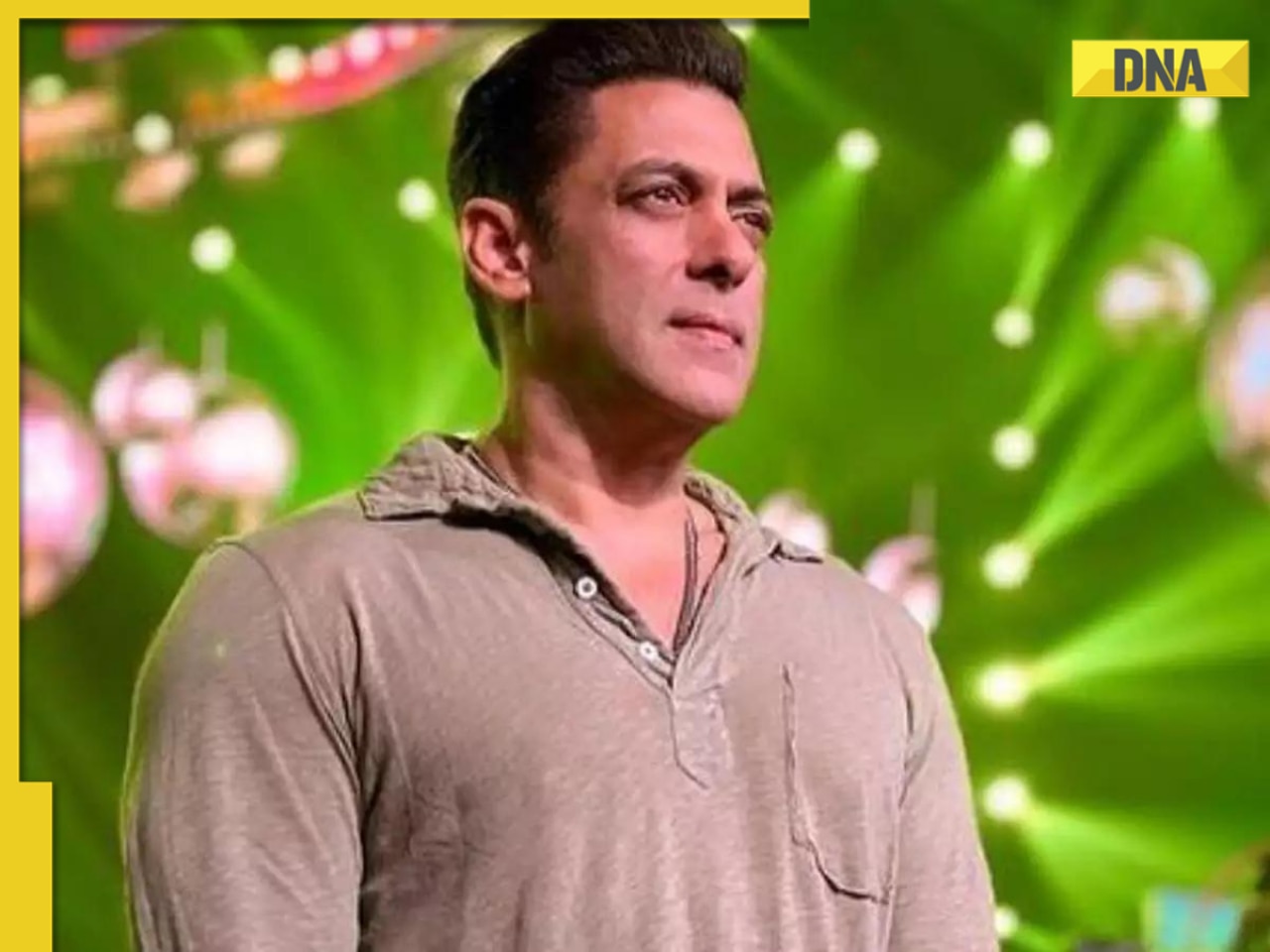
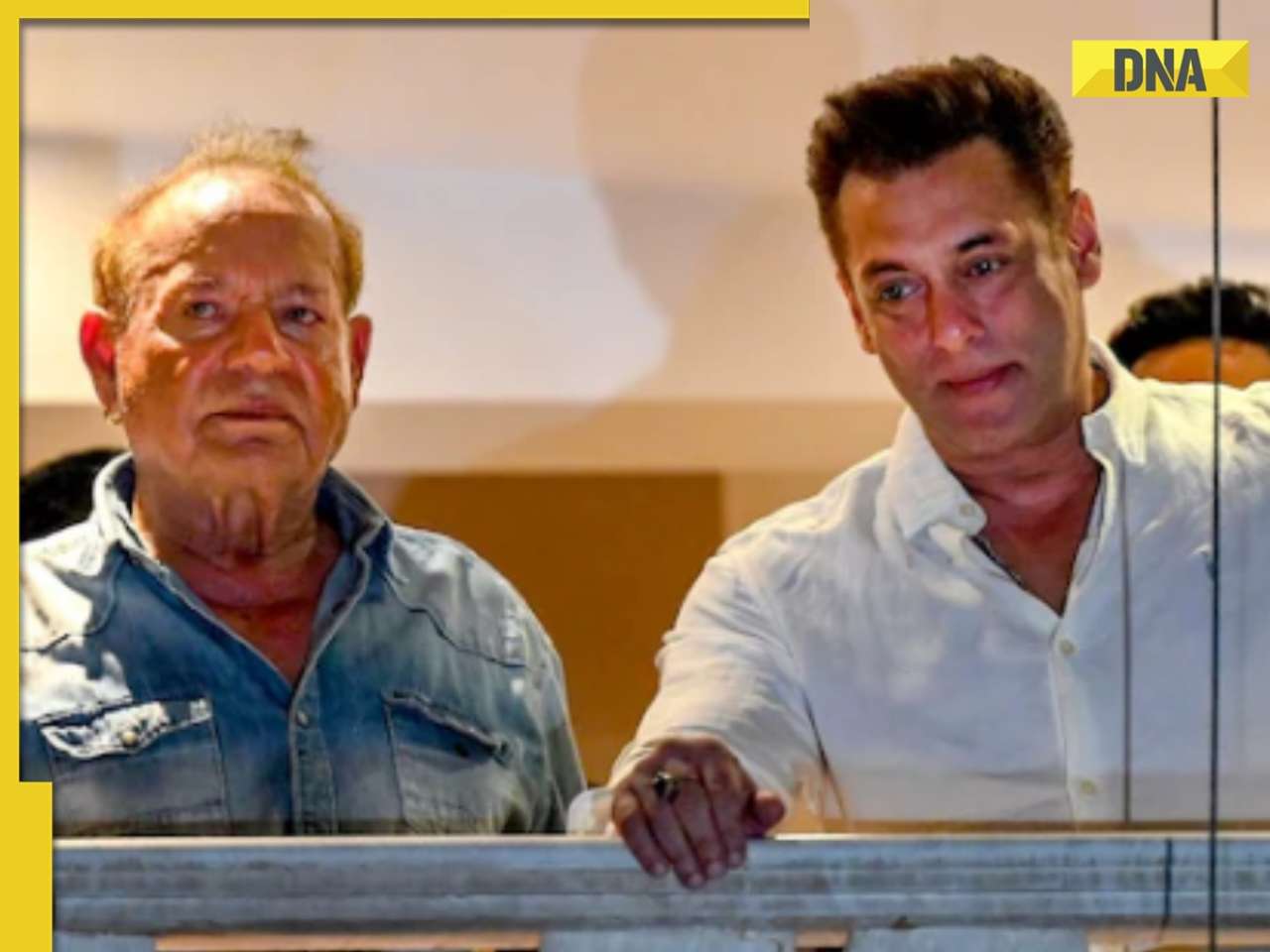
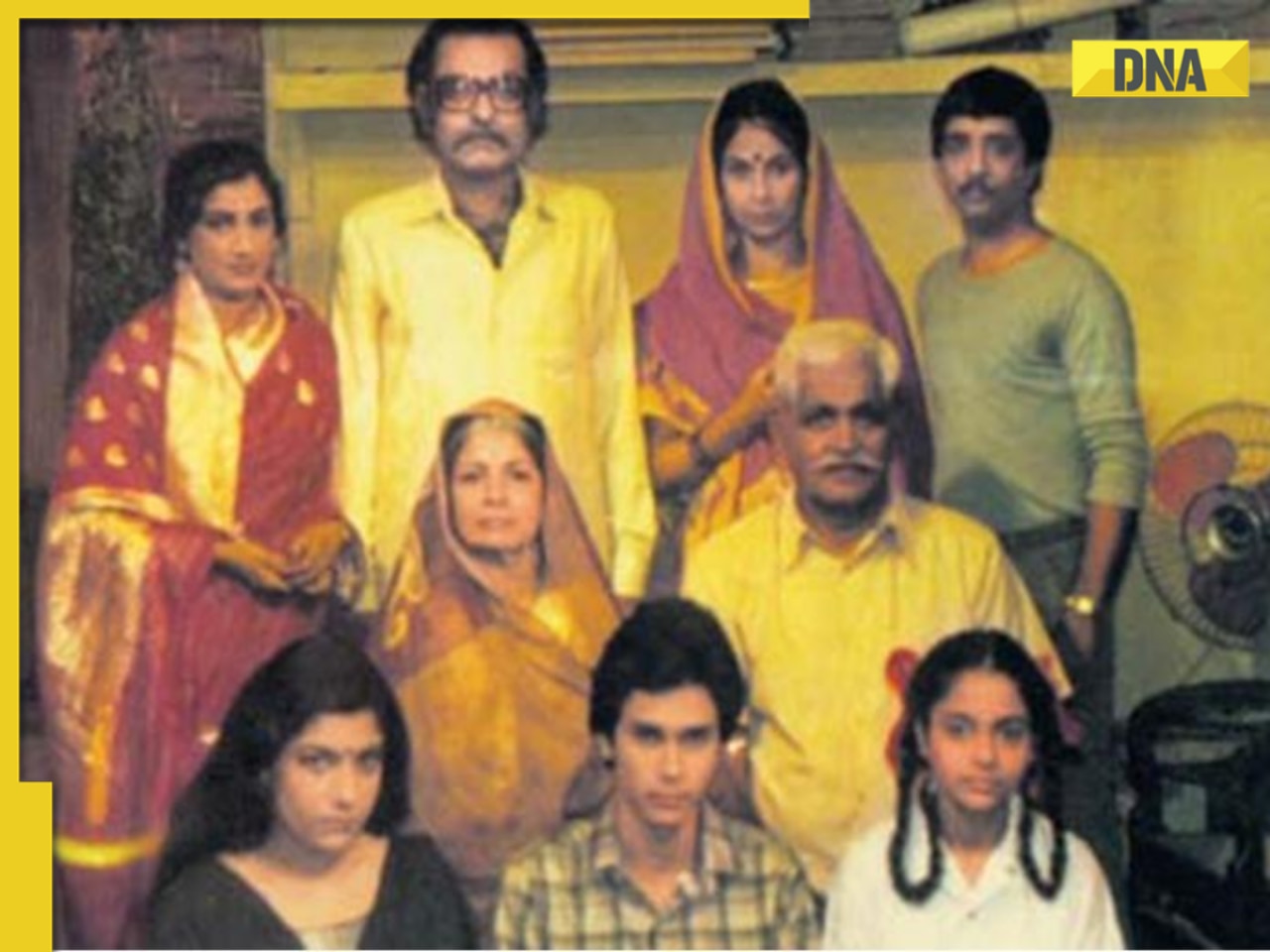
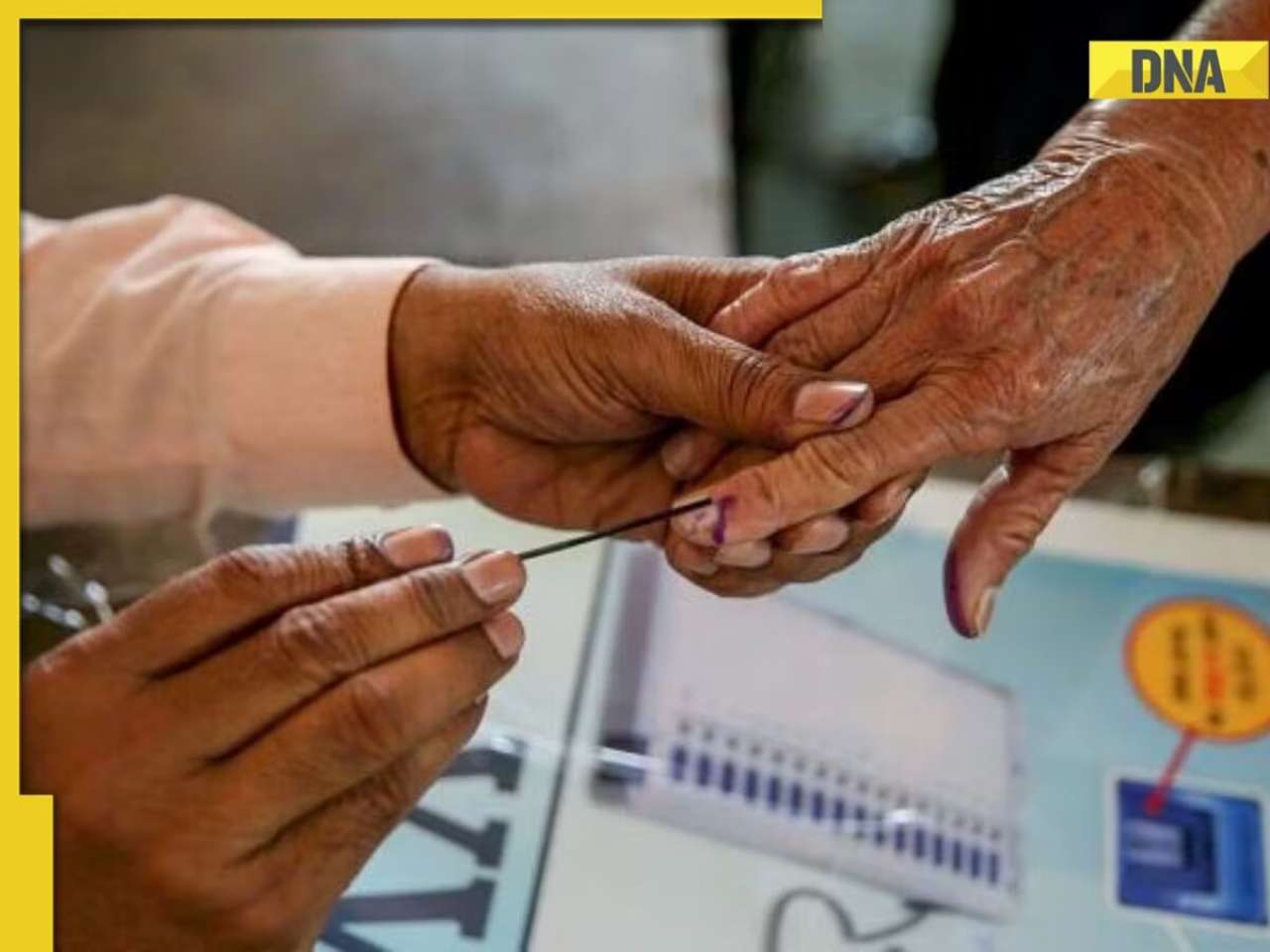




















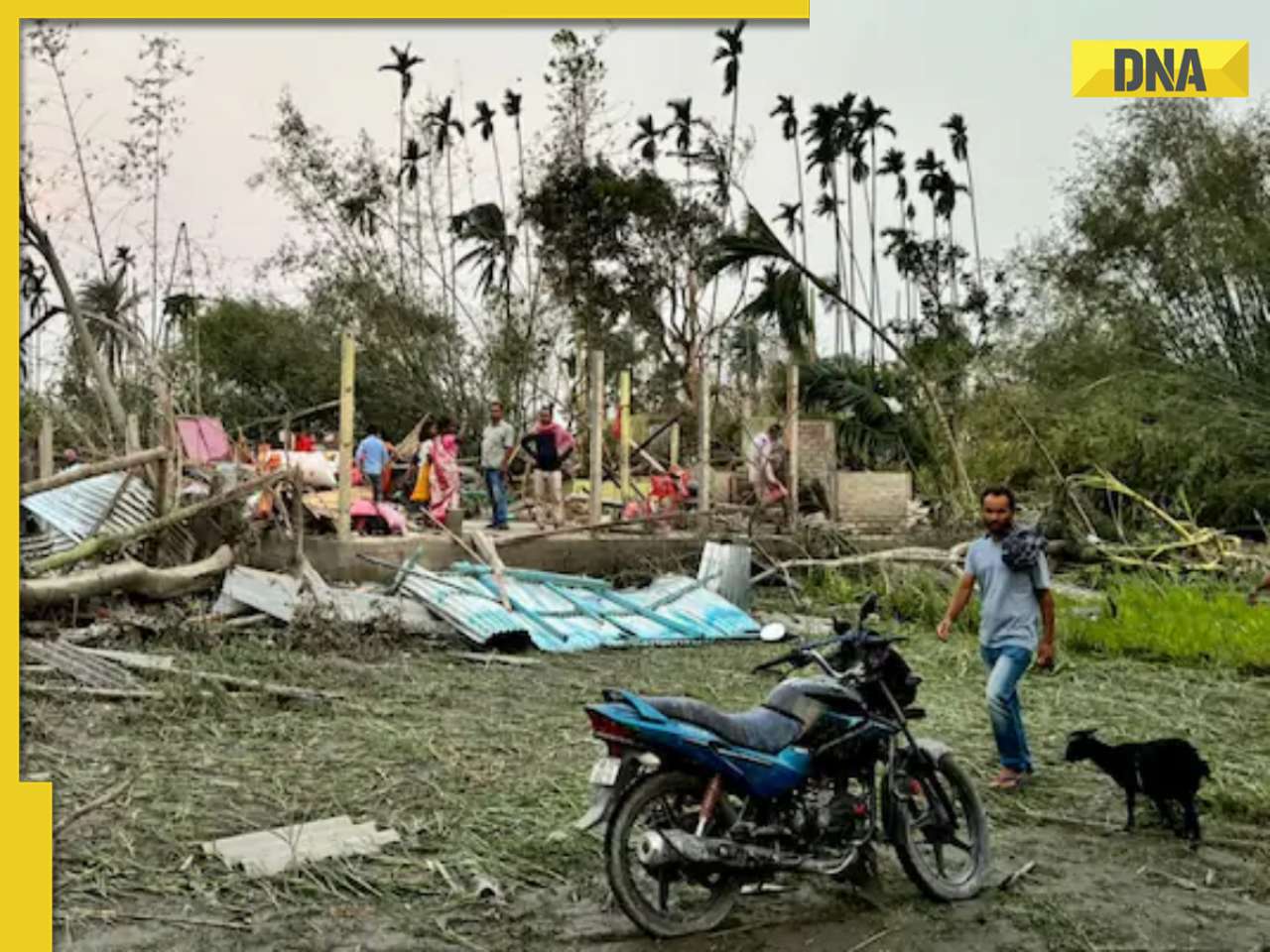


















)
)
)
)
)
)